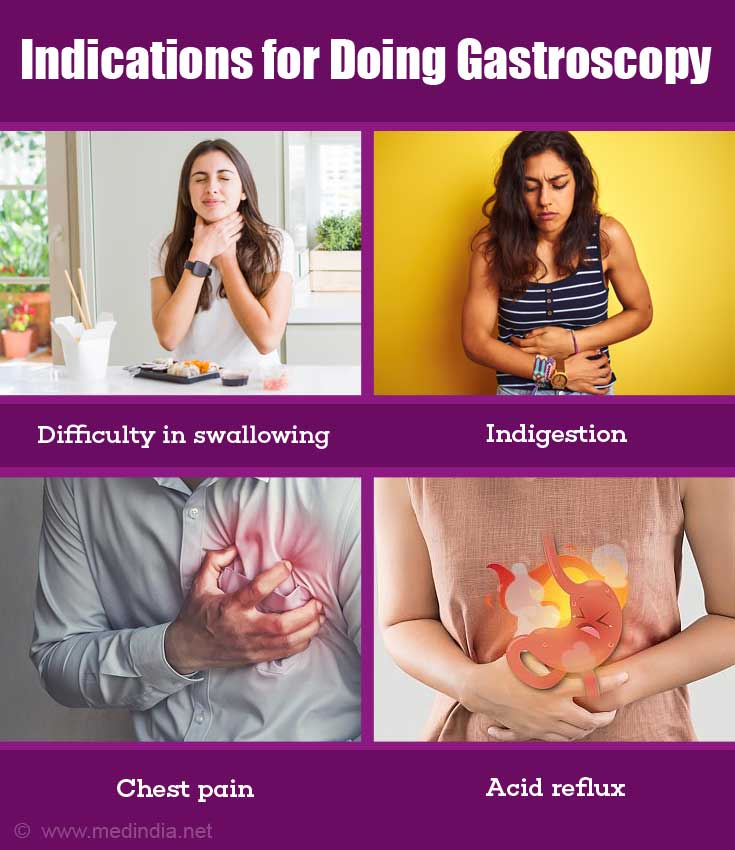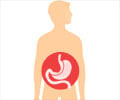- Gastroscopy - Overview - (https://www.nhs.uk/conditions/gastroscopy/)
- Esophagogastroduodenoscopy - (https://www.ncbi.nlm.nih.gov/books/NBK532268/)
Indications for Gastroscopy
Gastroscopy is indicated in patients with abdominal pain, internal bleeding, or for the dilatation of esophageal strictures.
Indications for doing gastroscopy include -
- Acute upper gastrointestinal bleeding, to establish the exact location of bleed prior to endoscopic cautery, surgery, etc.
- Dysphagia or difficulty with swallowing, especially if esophageal strictures or ulcerations are seen on a previous upper gastro intestinal series.
- Dyspepsia (indigestion) or heartburn, if refractory to standard medications. It is also indicated whenever a surgical procedure is planned in the upper digestive tract.
- Odynophagia or difficulty swallowing, when inflammation or infection is clinically suspected, especially if infection of the food pipe from candida, cytomegalovirus, or herpes simplex virus is likely.
- Surveillance endoscopy for known pre-malignant conditions affecting the upper digestive tract, such as Barrett's esophagus, lye-induced strictures (tight areas brought about by ingestion of a certain detergent) or Plummer-Vinson syndrome.
- Abnormalities seen on with other tests which require visual confirmation and tissue biopsy (eg: polyps, gastric ulcers, redundant gastric folds, strictures).
- Suspected obstruction at the end of the stomach.
Other indications of gastroscopy include -
- Atypical chest pain
- abdominal pain of unknown origin
- Uncomplicated cases of acid reflux
- Uncomplicated cases of duodenal ulcer demonstrated with radiological tests(1✔ ✔Trusted Source
Gastroscopy - Overview
Go to source, 3✔ ✔Trusted Source
Esophagogastroduodenoscopy
Go to source)

Treatments that can be done during the gastroscopy procedure include -
- Sclerotherapy of bleeding esophageal varices (open blood vessels at the base of the food pipe)
- Management of upper GI bleeding using electrocautery, photocoagulation, etc
- Laser ablation of esophageal cancer
- Endoscopic placement of esophageal stents to correct any narrowing
- Placement of permanent feeding tubes under endoscopic guidance (PEG tubes)
- Dilatation of esophageal strictures
- Polypectomy or removal of benign growths called polyps
- Dissolution of bezoars – A bezoar is a mass of indigestible material present in the digestive tract










